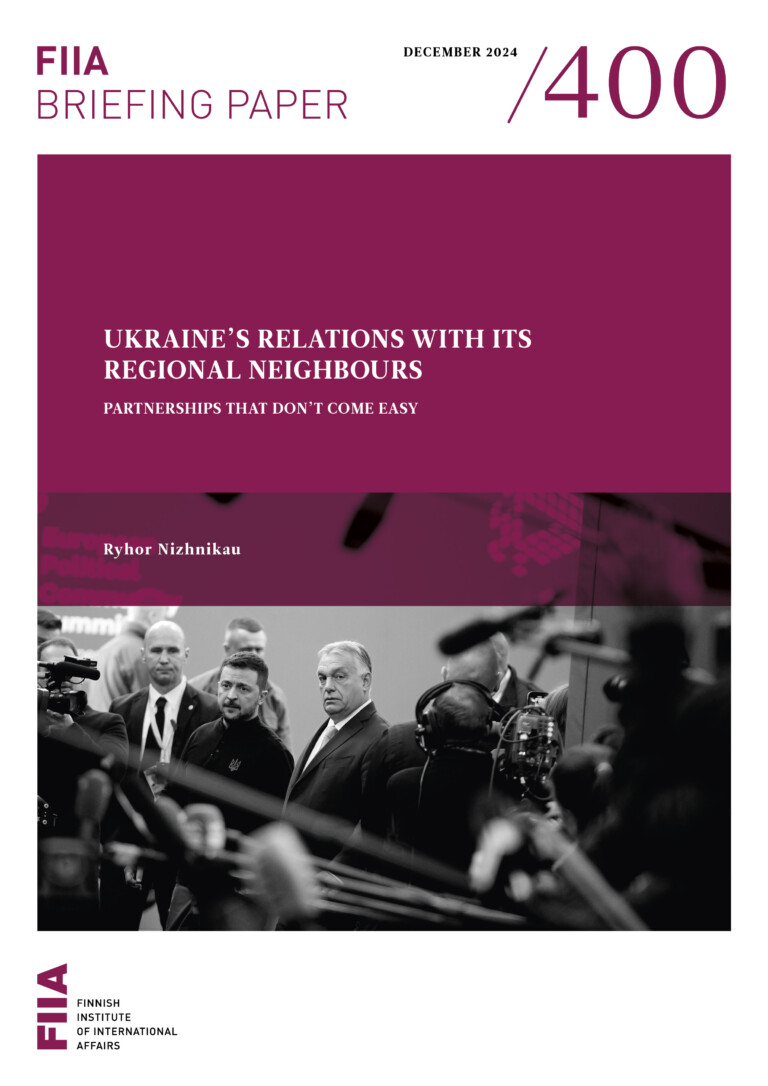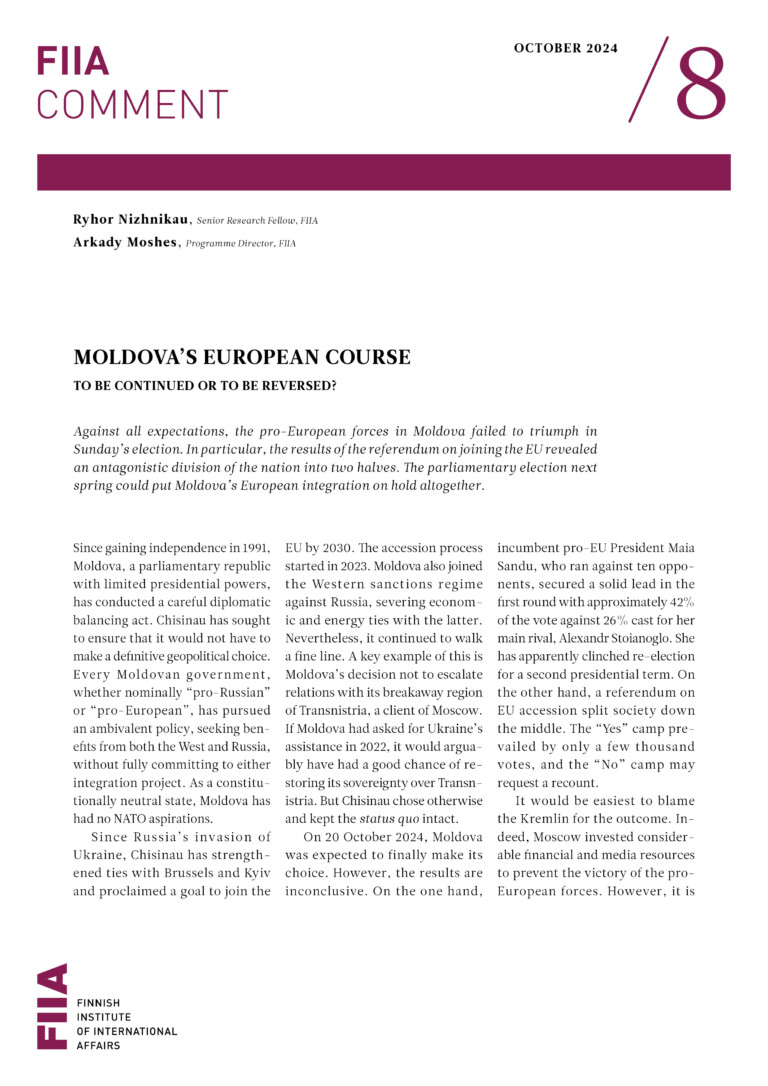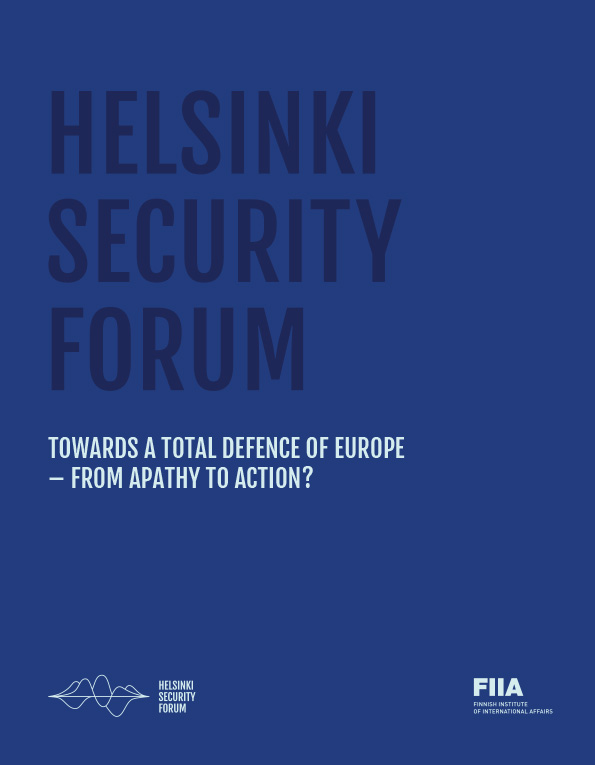History is offering Ukraine another chance to build a better future. However, what has happened is no more than a promise. The situation in and around Ukraine is still dramatic, and the country is facing numerous challenges, each of which can prevent the dreams of a functioning state and a thriving economy from becoming a reality.
The West should not allow itself any feeling of euphoria or, even worse, celebrate a geopolitical victory. The stability is still fragile, and the result was achieved not by Western strategists but by Ukraine’s citizens. In addition, the West should be very cautious about financial assistance.
History is offering Ukraine another chance to build a better future. In trying to concentrate power and wealth in the hands of his family and cronies, the former president, Viktor Yanukovych, ruined the system of balances and compromises on which Ukraine’s statehood has been based since independence. This was unacceptable for many, both among the ordinary people and the economic elites.
The ousting of Viktor Yanukovych is another reminder that at critical moments such rulers do not have any defenders, besides those in police uniforms bound by an oath, and paid mercenaries, which is not enough to resist the will of the people to change their lives.
However, what has happened is no more than a promise. The situation in and around Ukraine is still dramatic. The country is facing numerous challenges, and each of them can prevent the dreams of a functioning state and a thriving economy from becoming a reality.
Three challenges are particularly worrying.
To start with, the capacity of the new authorities to build an effective system of governance is in doubt, as is their readiness to actually take responsibility for the painful process of reforms. Quite a number of people, now thrust into power in Ukraine, were in the government before – after the Orange revolution – and failed. The then winners were able to maintain unity for only several months. The rivalry between President Viktor Yushchenko and his first prime minister, Yulia Tymoshenko, became the key reason for the procrastination of reforms. Today’s ideological differences between the more radical nationalist wing of the protest and the “liberal internationalists” are stark and certainly increase the likelihood of conflicts between individual politicians.
Presidential elections will take place as early as May, and it will be a miracle if the protest leaders are able to agree to field a single candidate. More likely, they will compete against each other. Nor should one forget that certain officials who defected from the previous regime and joined the winning side will not necessarily be part of the solution. On the contrary, a compromise with them may be part of the problem. The generally weak institutions and a traditionally high level of corruption should also be taken into account.
Further, the country may become destabilized again after the May elections. This is due to the fact that a political representative of the eastern regions of Ukraine – as yet unnamed but no doubt likely to be revealed soon – is capable of winning a fair and free election in the country. The prerequisite will be to distance him- or herself from Yanukovych personally, but that’s a technicality. The electoral arithmetic of Ukraine is such that the country’s East is numerically stronger, and its representative has won four out of the five presidential elections held in Ukraine’s history. Today, perceiving the rise of nationalism, the East Ukrainian voters will be mobilized by the fear of losing the cultural and political status they have maintained until now. But there is no guarantee that such an outcome would be accepted in the western regions.
Ukraine will not split. West Ukraine is ideologically committed to the country’s territorial integrity. The Eastern elites prefer the influence and economic benefits they are used to in independent Ukraine to subordination to the Kremlin, which would be inevitable in the event of secession. And yet, another deep political crisis cannot be ruled out.
Ultimately, the Russian factor will enter the picture. It would be too early to predict with certainty whether Moscow will take a tough line. If Ukraine collapses economically, Russia will suffer as well. Russian loans and Ukraine’s gas debts will not be paid back, and the assets of the Russian companies, starting with Gazprom, which do business in Ukraine, will depreciate considerably.
That said, however, it is clear that Moscow cannot be expected to adopt a benign attitude towards the new government in Ukraine, nor wish it success, let alone give it money. Concerns that Kiev may now re-submit its NATO membership application or revise the deal on basing the Russian Black Sea Fleet in Sevastopol are quite strong. The Russian ambassador has already been recalled to Moscow.
What should the West do in these circumstances to help Ukraine make progress? First, it should not allow itself any feeling of euphoria or, even worse, celebrate a geopolitical victory. The stability is still fragile, and the result was achieved not by Western strategists but by Ukraine’s citizens, most of whom, it should be added, were utterly frustrated by Europe’s inability to support them when such support was critical, and its willingness to negotiate the rather favourable conditions of Yanukovych’s departure instead.
Second, the West should be very cautious about financial assistance. This should be provided only in exchange for strong guarantees of reforms. If massive assistance is given simply to boost the electoral chances of certain political forces, the West will repeat a mistake it has made all too often. The money will not make a difference, but only turn Western taxpayers against Ukraine.
Third, Ukraine’s elections should serve as a real test of the country’s willingness to sign the association and free trade agreement. If a pro-European force, campaigning on that platform, wins the elections, the agreement will have to be signed without delay, and convening a special bilateral EU-Ukraine summit for that purpose would not be too much to ask. If it loses, the result will have to be accepted.
Meanwhile, and fourth, the issue of the EU membership perspective for Ukraine needs to be revised. Only tough conditionality can help Ukraine at the moment, but making tough conditionality attractive calls for a big prize.
As for Russia, the West should apply its best diplomatic skills to ensure a cooperative solution is found. But it has to be prepared to deal with the situation if one is not forthcoming.


















